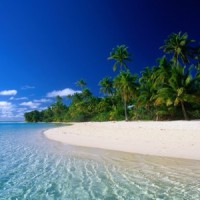Costa Rica and Turtles….
A picture speaks a thousand words. Or does it? There is a chain email doing the rounds and hitting social network sites en masse, castigating some people in Costa Rica for "stealing" thousands of turtle eggs. The images are horrifying, displaying ignorant greed, and present the perpetrators as insensitive and cruel. 
These pictures speak thousands of words, but they are extremely ambiguous. They are another example of the power of some individuals or organizations with specific agendas to utilise the internet to further their cause.
They broadcast images with little analysis, playing fast and loose with facts, and designed to shock – designed to play on, and exploit, the decent emotions of humanity.
Recipients will clearly be distressed and react with horror. They will forward the emails. It is natural, and they are victims of sinister forces with hidden motives.
The region of Costa Rica where the events take place is one of only a score of beaches in the world where the Olive Ridley turtles nest. This species is unique amongst other turtles which nest individually, and congregate in their masses at sea to hit the beaches like an invading army.
200,000 land during the rainy season, employing a battalion command structure. Every three or four days 20,000 dig their nests in the sand, laying as many as 100 eggs each. This pattern repeats itself, and each new wave disturbs the earlier nests until the laying season is over. The result is that the early nests are destroyed, resulting in broken eggs, sand bacteria, and diseased hatchling carcasses.
Scientists and conservationists believe that by removing eggs during the first two nights of the cycle will encourage the survival of the rest (don't take my word for it, the facts are out there!).
It is for this reason that the government of Costa Rica allows the practice of egg harvesting. Turtle egg poaching is a crime, but through this managed programme it permits the local population to legally harvest eggs under supervision of the Ostional Internal Development Association (ADIO).
Indeed, the people taking the eggs are actually only removing 1% of a potential 20million. But the pictures imply that they are raiding with impunity and decimating a species. With or without human intervention, natural predators will descend upon them, and cause more damage because of indiscriminate selection. Sadly turtle eggs are easy game and have been throughout history.
There are two questions: Does mankind make an intelligent contribution to the turtles' overall well-being, or if left alone will they be better off? Sadly, if man is left alone to behave irresponsibly, he will be alone. The price of loneliness is costly.
The Costa Rica government is proud of its environmental and conservational approach, and very upset by the negative images of its people broadcast worldwide. Mud sticks. People may think twice about visiting their country, which in turn will impact on the economy, which in turn will affect their income, and then they will be less environmentally friendly – because they will need to survive at any cost, and then turtles and their eggs will be in even more danger, and sold at premium prices.
This is the way of the world, and it is happening everywhere, not just with eggs, but with primates, elephants, tigers and Rhinos in Africa and India. If these rare species can't be protected now, how much less can the abundant humble turtle be protected in times of economic distress?
It's easy to show a picture. But the big picture requires more than the visual image.
Nevertheless, as a result of their policy, more hatchlings are being born, bacteria has been reduced and the Ridley Turtle is now laying eggs at more beaches along Costa Rica's coast. Due to this sustainable management it has led to a reduction in illegal poaching at other beaches as the controlled availability of turtle eggs are now affordable. If the question should be asked as to why turtle eggs should be eaten at all in Costa Rica or elsewhere, then ask why should any eggs be eaten at all? There are billions of chickens and ducks around the world asking the same question.
This issue is about the sustainability of local communities and the continued survival of a species.
Conservation is a cruel business. Culling is a dirty and necessary part of it.
Eggs are eggs, but to ensure the rich mayonnaise of life some have to be cracked.
Think about that next time you make an omelette.








Conservation is a cruel business. Culling is a dirty and necessary part of it.
As you so eloquently put it and I have to agree with you whole heartedly.
LikeLike
Thanks you for taking the time and caring enough to post this. I have come your site through a very innocuous and convoluted route and am glad I found it. I will certainly pass this along to my list. Time we paused and quit ‘auto-believing’.
Kudos!
LikeLike
Thank you Marilyn for your comment. I always try to get the true perspective whenever possible. Sorry it’s taken me so long to acknowledge your comment – I’ve only just realised it was here (I must improve my blog management!). Regards.
LikeLike
Thank you Spook for your comment.
LikeLike